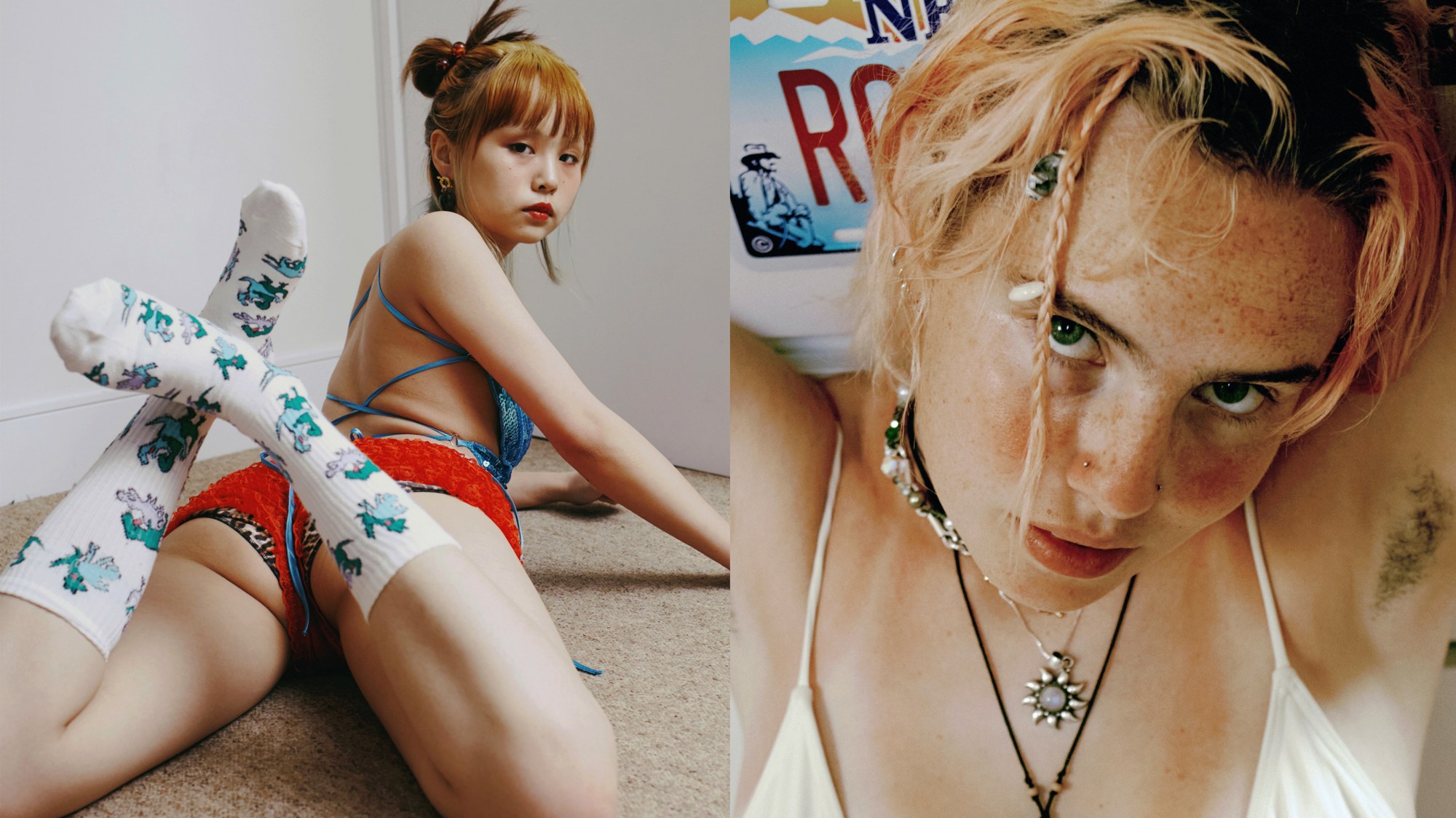Emblematic of their investigation into the numerous faces of femininity, GIRLS is the latest photo essay by photographer Guen Fiore and stylist Rubina Vita Marchiori. Stemming from their desire to develop a photographic archive that immortalises what being a young woman means today, the London-based Italians brought together perfect strangers in Paris and London — ones whose only common denominator is that they’re all currently navigating contemporary girlhood.
“Throughout the past year, I have been very inspired by the same 20-year-old girl,” Guen says, referring to Livvy, one of the protagonists of the series. “Even more than her appearance, what has intrigued me about her is how she expresses herself; a subtle balance between sensuality and what is left of childhood innocence. After photographing her on several occasions, I envisioned a project that could talk about this passing stage in a girls’ life from a wider range of perspectives by focusing on the next generation of women.”
“Our interest in 20-somethings transitioning from girlhood into womanhood is what defined most of my collaborations with Rubina, which is why I thought she would be the perfect person to have on board for this series.” At once drawing on and further expanding Guen and Rubina’s previous projects, GIRLS dives into the uniqueness of young women’s experiences — from the journey leading to body acceptance, to sexual awakening and the discovery of sensuality — providing viewers with a glimpse into the lives of those who are just coming of age now.
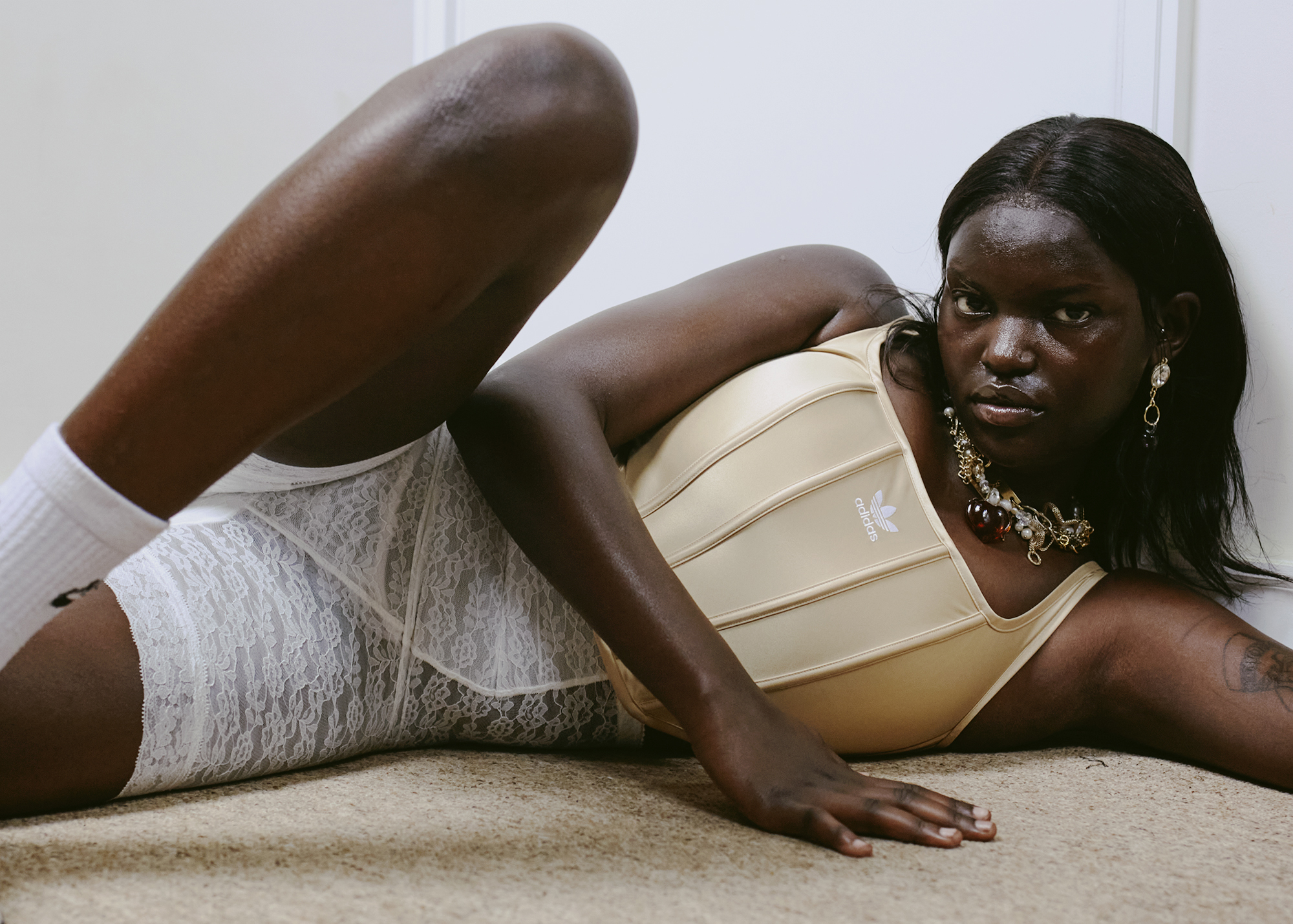
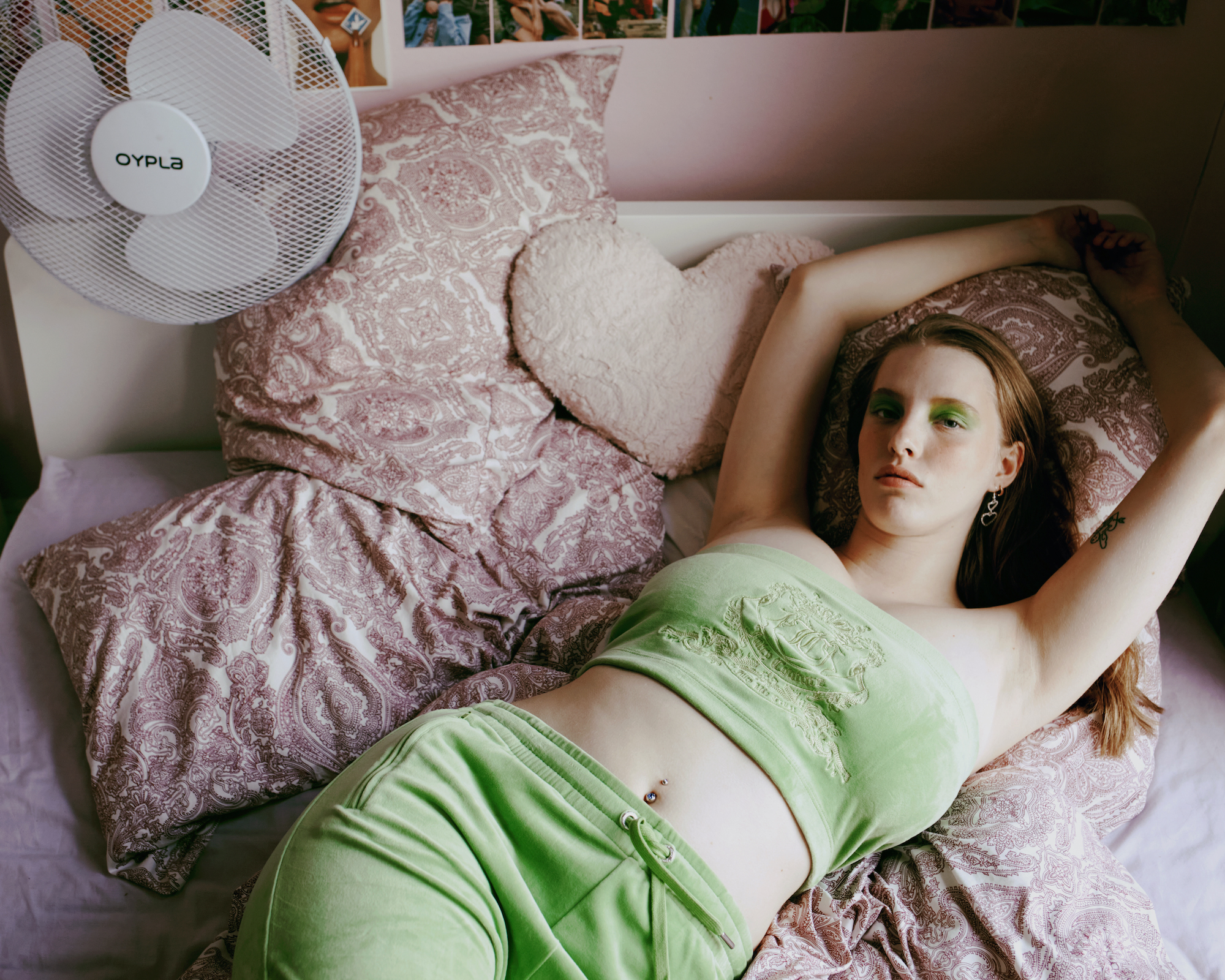
What motivated the two creatives, both now in their early 30s, is their resolution to shape a new narrative around girlhood and dismantle the outdated gender stereotypes that plagued their own coming of age. In their documentation of 21st-century femininity — further enriched by Rubina’s subject-led, experimental approach to styling — how girls are supposed to behave, dress and look gradually loses its meaning, leaving space for them to express themselves freely in front of Guen’s lens.
“To this day, women are still being judged and verbally abused on the basis of their outfits, sexual behaviour and overall attitude,” the collaborators say. “As cliché as this might sound, this type of discrimination does not affect their male counterparts who are often praised for being ‘players’.”
“GIRLS breaks with the objectification of the female body by showing its protagonists at ease in their own skin in the comfort of their homes, away from the male gaze,” they explain. “Because not everything that we wear, do or say is meant to please someone else. Sometimes we just want to look in a certain way for ourselves, because we feel beautiful like that, but first and foremost, because we retain full control over our image. And that’s exactly what we tried to express in this photo essay.”
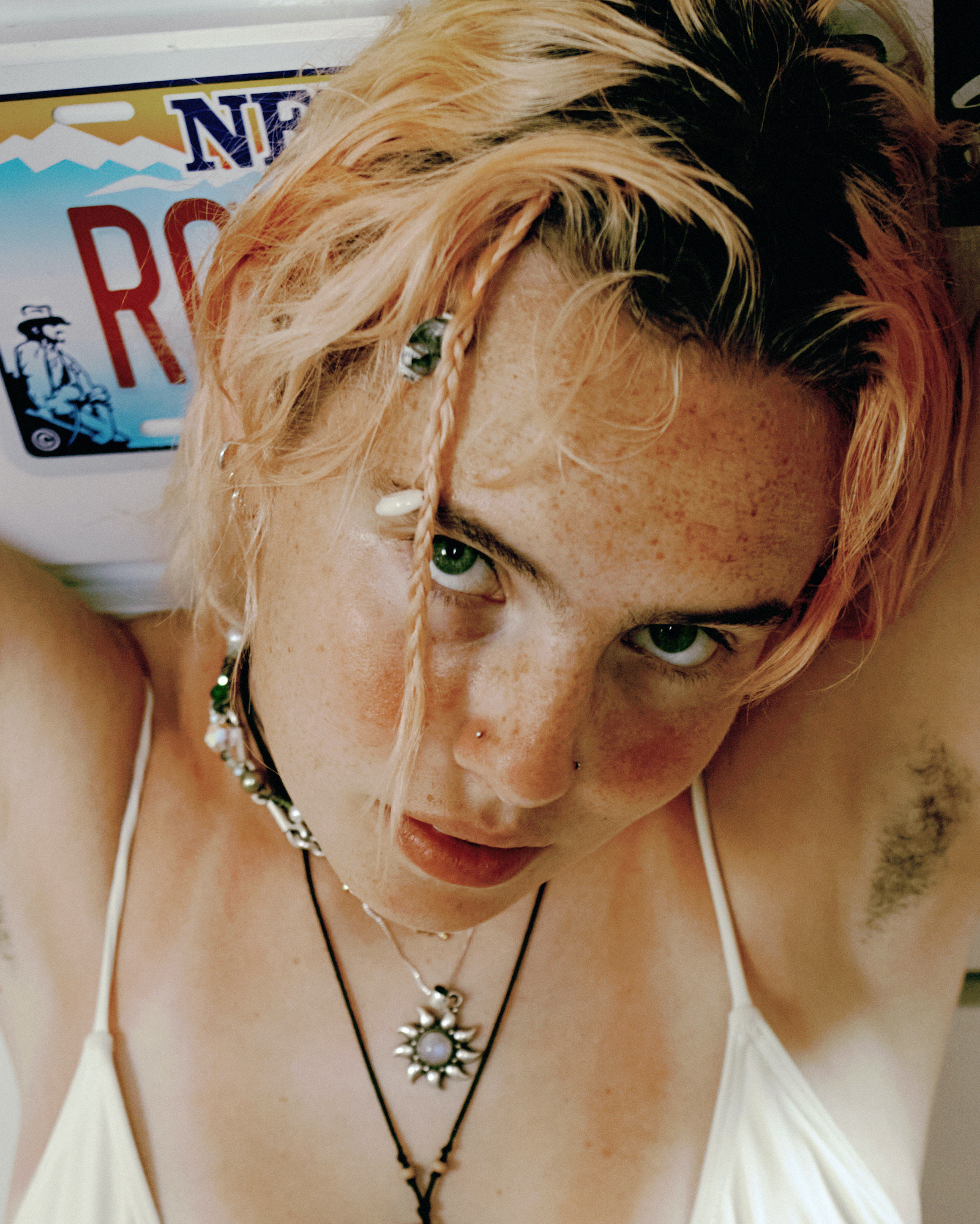
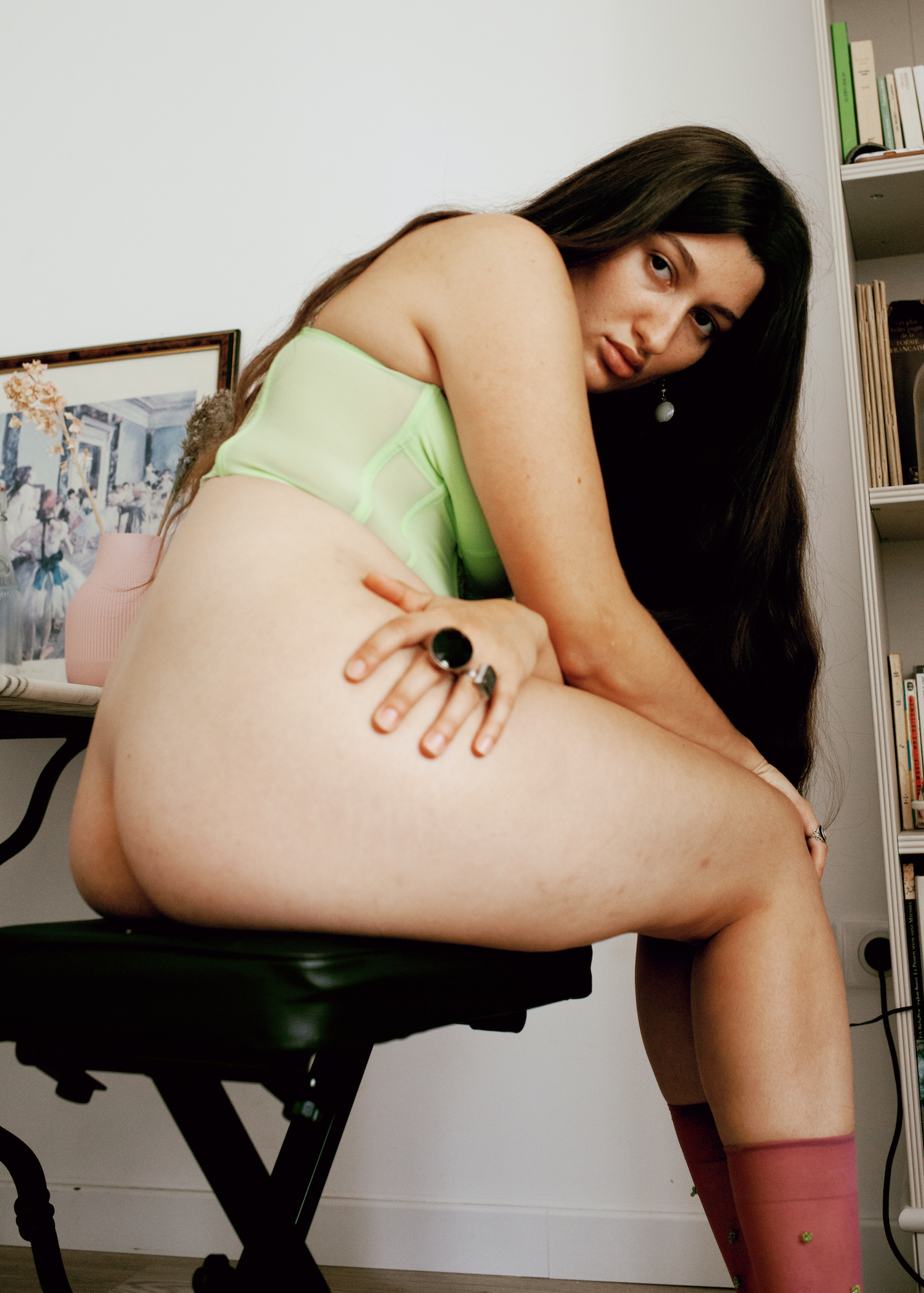
Juxtaposing hyperfeminine garments with selected vintage sportswear, Rubina does justice to the kaleidoscopic personality, audacity and refreshing youthfulness of her subjects. All proud Gen-Zers, the protagonists of GIRLS are not afraid to confront Guen’s camera, which they face boldly as if challenging viewers to maintain eye contact.
“We chose to scout girls who had never been photographed before or models with a very strong personal style,” Guen and Rubina say of the casting process. “We wanted to portray ‘real girls’ instead of feeding into the beauty standards that rule on social media. Styling and photography were used to emphasise the subjects’ real essence, which served as the protagonist of this photo project.”
Below, i-D meets some of Guen and Rubina’s GIRLS to discuss what being a young woman means today and gather insights from the making of the series.
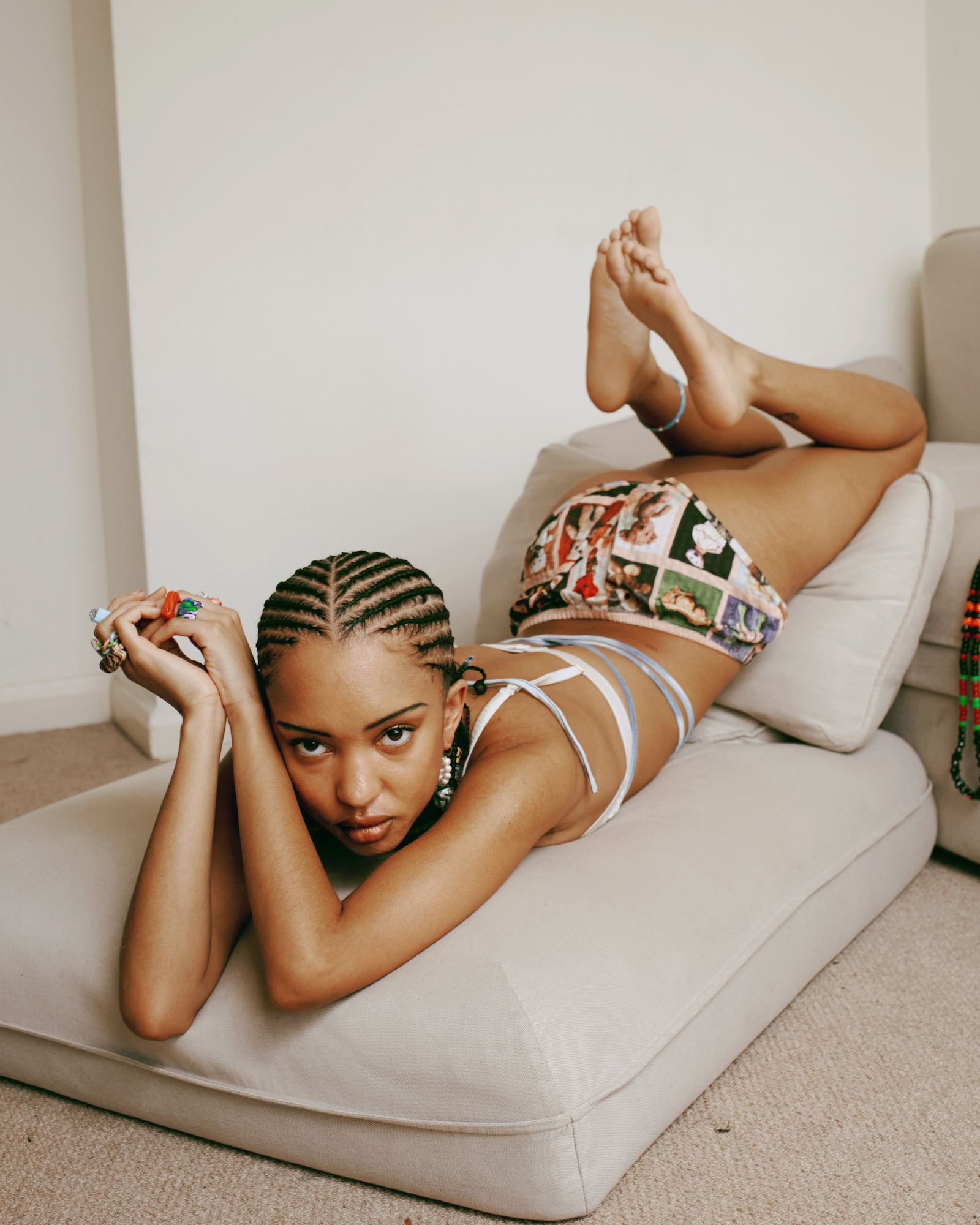
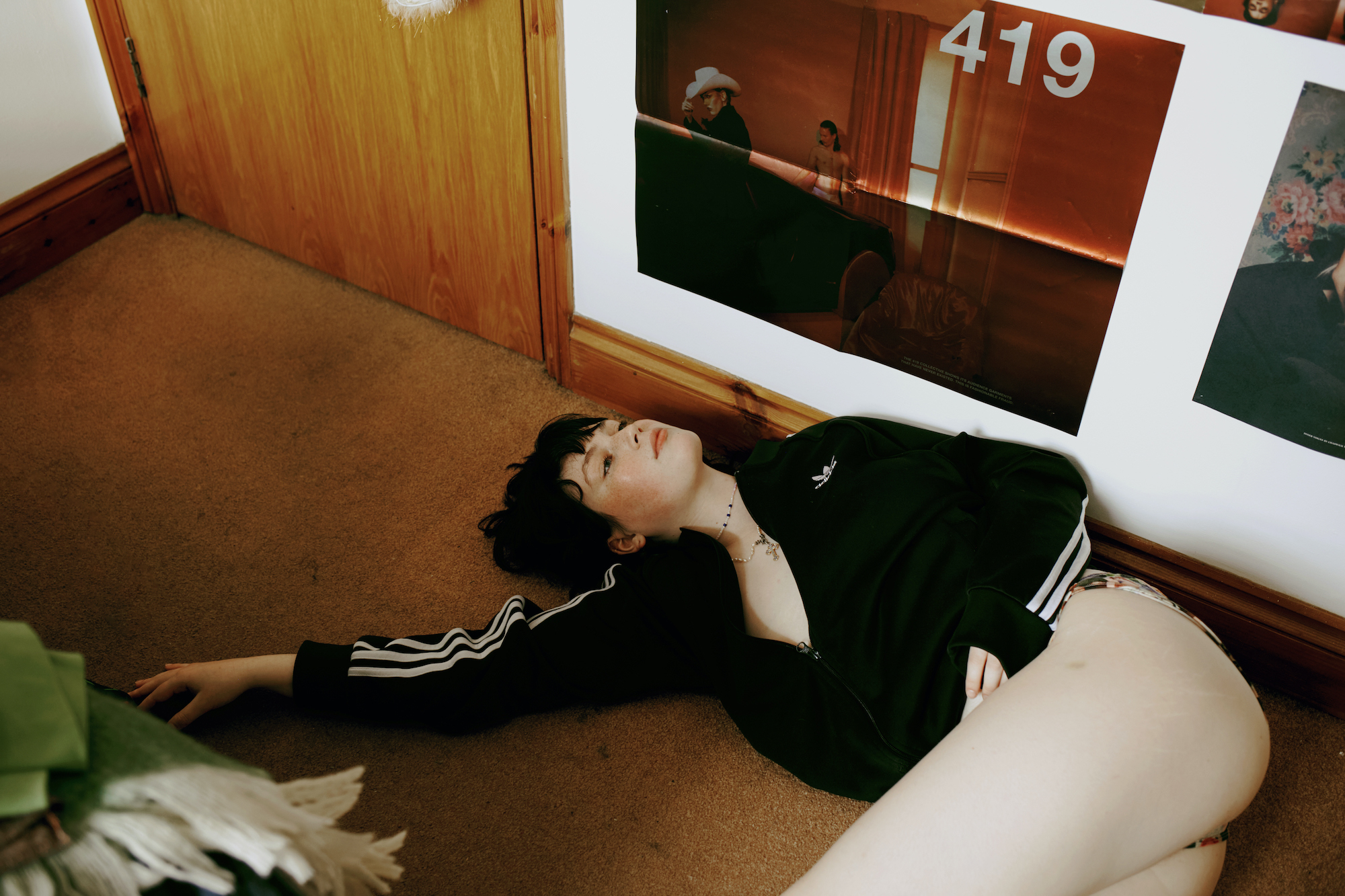
How did it feel to be part of this project?
Molly: Posing for Guen was amazing. I could be myself without fear of looking silly or feeling embarrassed. In her shots, I look like the confident person that I want to be; as if, through her eyes, she showed me who I am and who I could be in the future.
Albertine: I felt beautiful in the most natural way. I didn’t wear any makeup, nor did I try to hide my curves or hold my breath to flatten my belly. I agreed to pose in ways that accentuated my body shape. People underestimate how a bad image of yourself can effect our actions in so many ways. The satisfaction I felt that day was priceless.
Anugraha: When I think back on the gloomy London day I spent working on this project, I remember the sudden burst of energy I felt while standing in front of Guen’s lens. When I moved, she moved— like magnets. I’ve always found it hard to relate to the word ‘sexy’, as if I didn’t even belong within that spectrum. But my perception of myself changed during that shoot and today, I know that I can be sexy if I want to.
How would you describe Gen Z girls?
Molly: Unapologetically ourselves. Having spiking and kidnapping become so common recently, girls are more at risk from everyday sexual violence than ever. The news is a constant reminder of that, but I am truly grateful to have good friends that look out for me.
Albertine: We’re lost and, at times, frightened, but we also rebel and are full of hope. The next generation of women are much more aware of the injustices every girl suffers on a daily basis. Solidarity has risen and discussions have grown too. I feel like the 70s are coming back, with debates around sex and body image taking centre stage once again. But there’s more to it, as current feminism questions those who came before, finding new answers to similar problems.
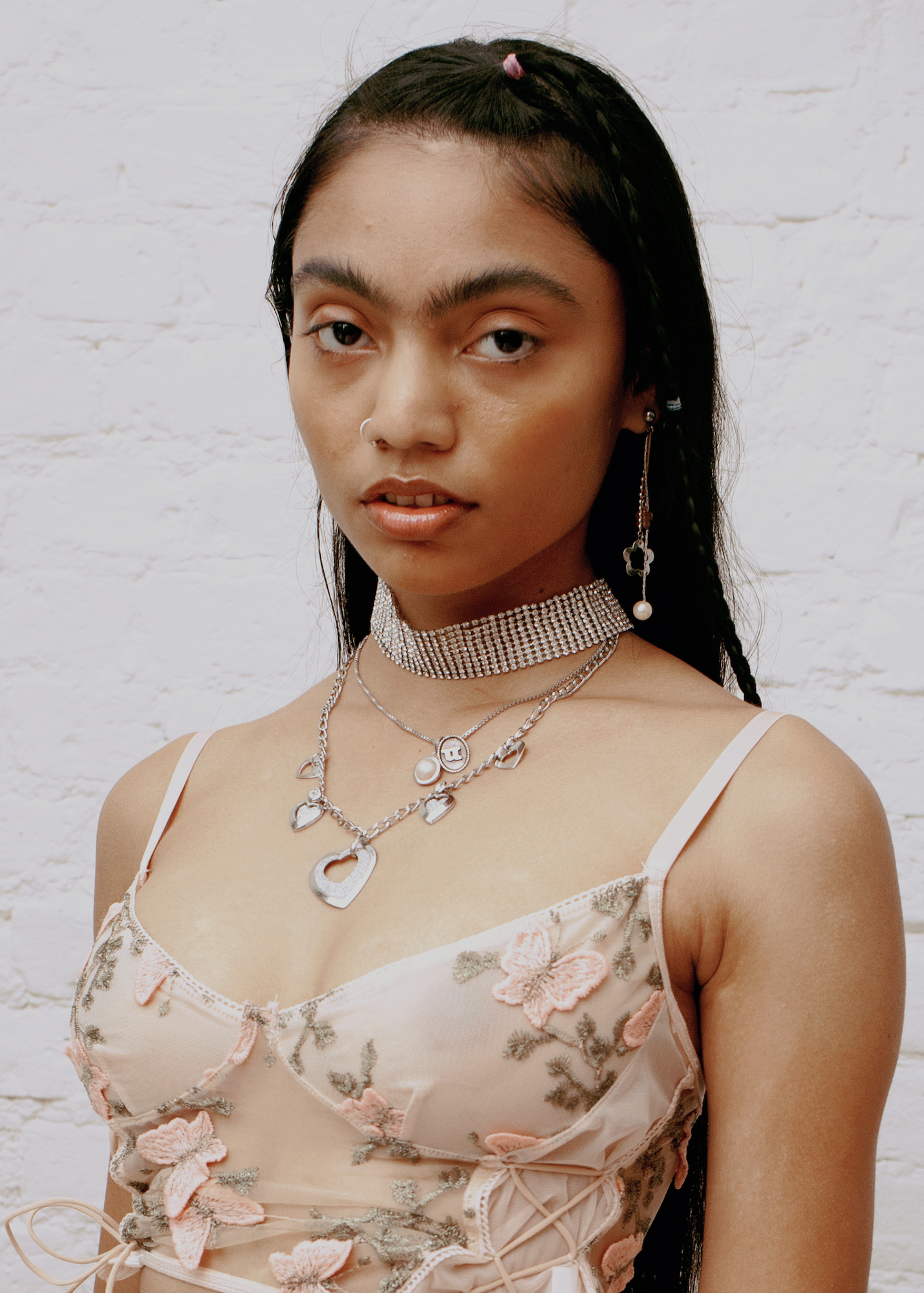
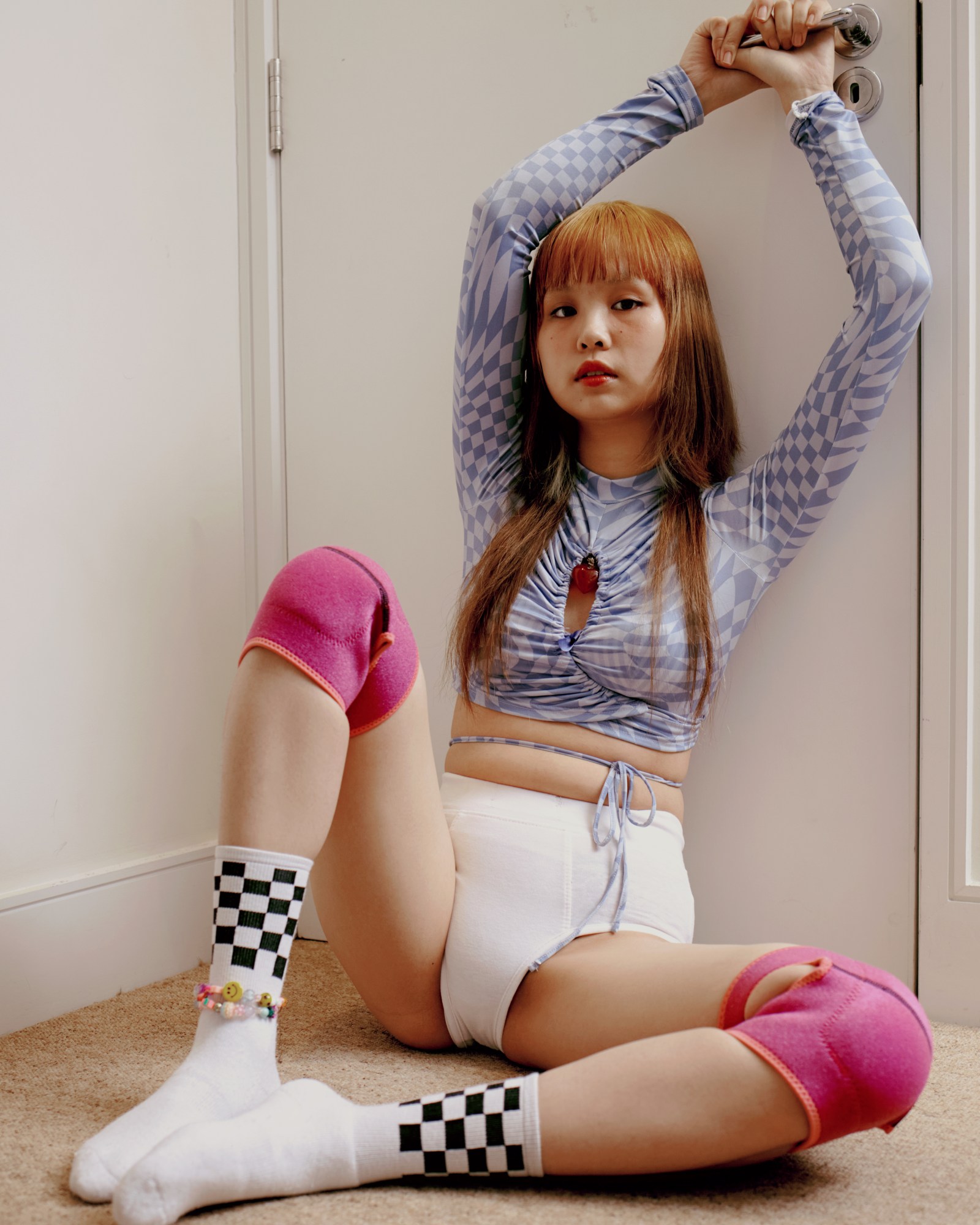
What is your biggest dream?
Molly: My biggest dream is to be happy with myself, anything else is just extra. I have just moved into my own flat with my best friend, and I’m so proud of how much we have both grown this year. My family is everything to me; they seriously are the reason I do anything at all, so I would want them to be proud of me.
Albertine: I dream of living as an artist, enchanting the world with my poetry, photography and videos. My biggest accomplishment so far is probably having successfully juggled between my masters in philosophy of science, my artistic projects, modeling and the drafting of my first novel, which took me five years! I never thought I would have the strength to do all of this at the same time.
Anugraha: My biggest dream is to be in a place where my younger self would be proud of me today. I’m constantly hyping myself up by saying things like “You did that!” and “I’m so excited for all the amazing things that are heading your way.” I’m my biggest cheerleader!
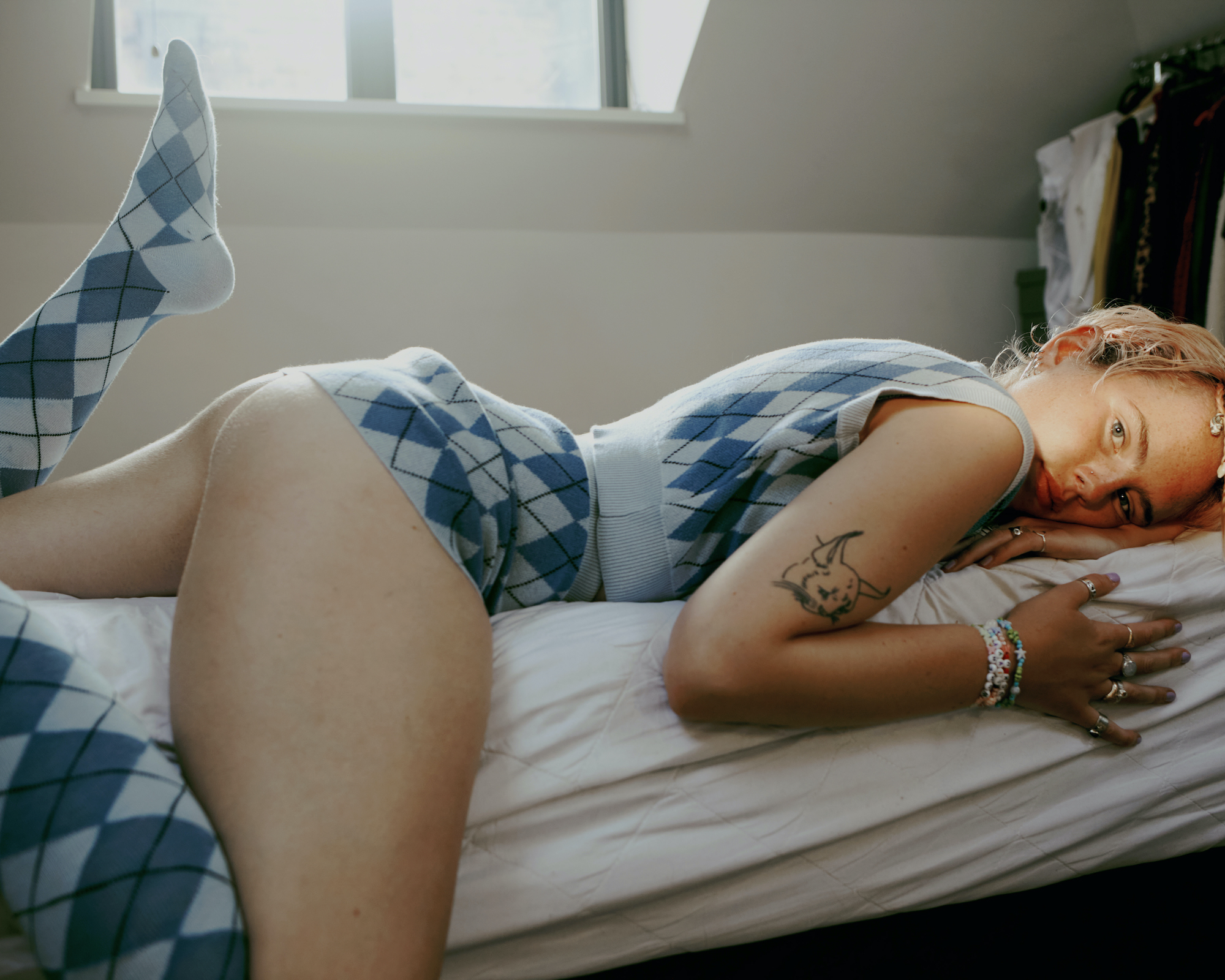
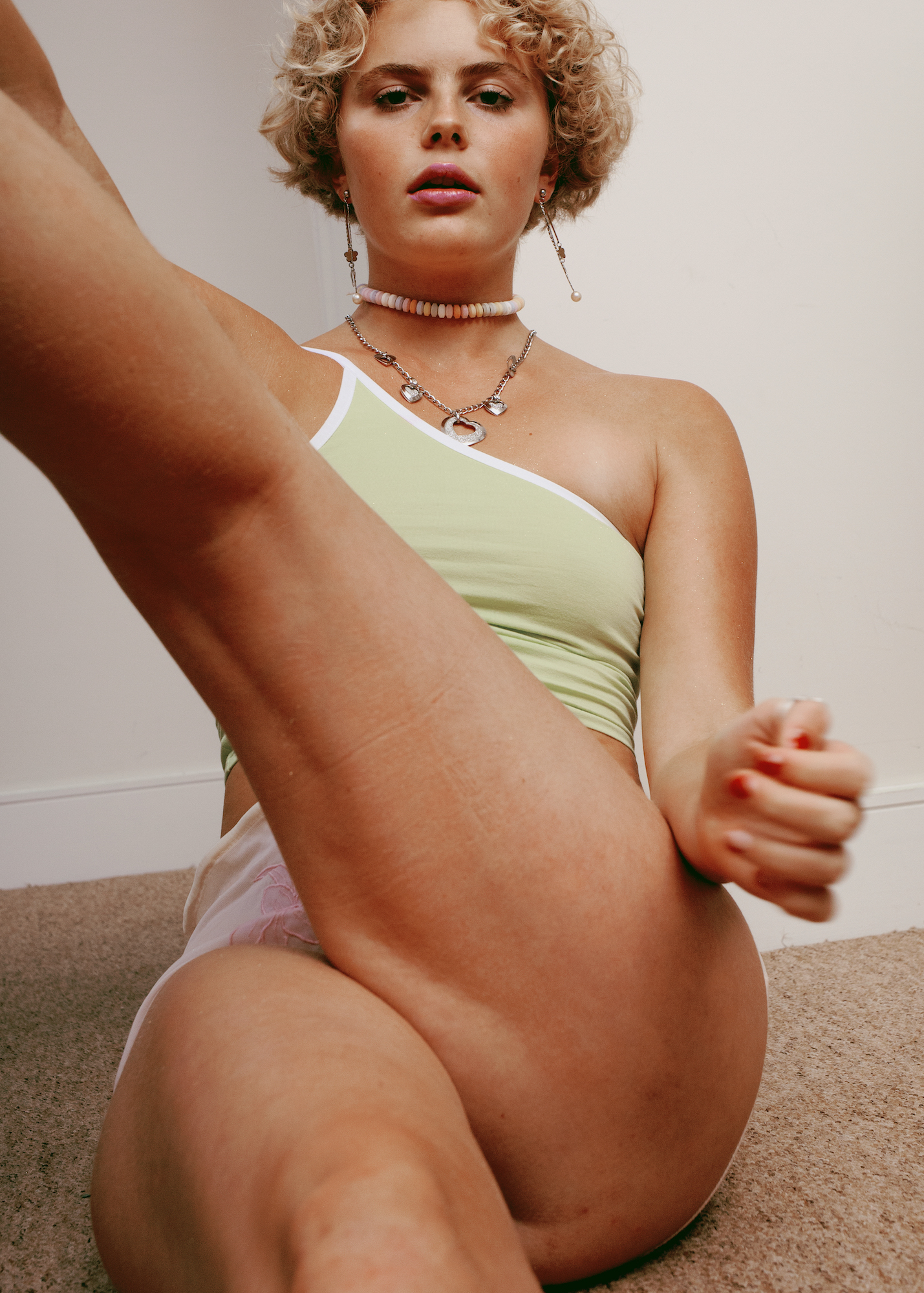
What inspires you in life?
Molly: My dad will always be my biggest inspiration. He’s my best friend, and I wouldn’t be half the person I am today without him.
Albertine: Philosophers and poets are my greatest source of inspiration. In general, people living in the most minimalist and modest ways are my models. Women artists and authors also help me feel strong. My favourite one is Virginia Woolf, whom I feel [spiritually] close to.
Anugraha: I am deeply inspired by today’s new generation of women and how they stand in solidarity with other girls, building each other up rather than pitting one another against each other as has happened in the past.
What sort of ‘revolutions’ would you like to witness in the coming years?Molly: Although it doesn’t seem that revolutionary, I would love to see more inclusivity in everyday life. There are so many people that deserve a chance to show their talents so I hope that, when I am a grown-up, the world will be fairer.
Albertine: I would honestly love to see capitalism collapse, but in what way? That’s the question.
Anugraha: If there’s a revolution I’d like to witness, it must be the one against the war on female bodies. It’s happening as we speak, and I cannot wait to see its results.
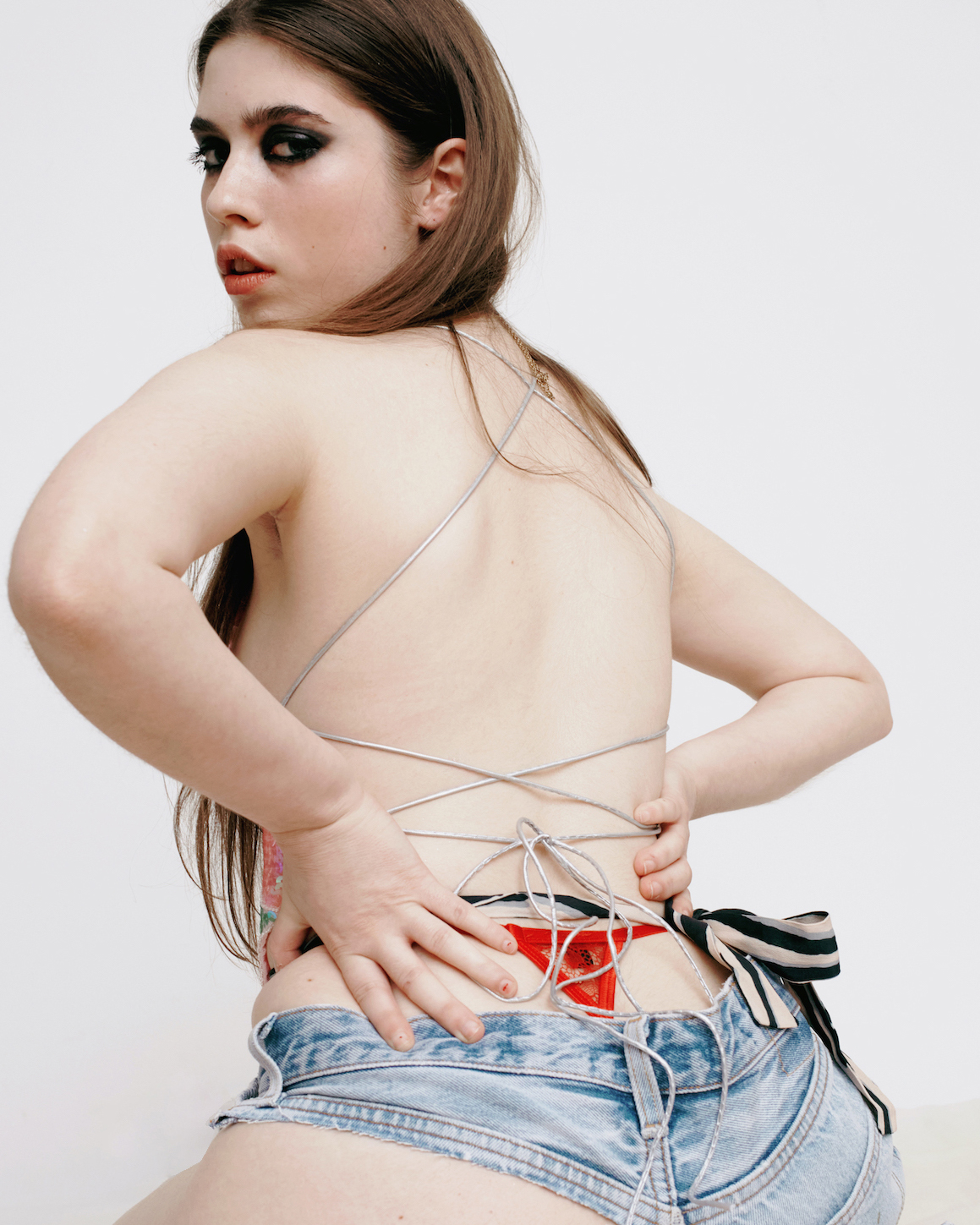
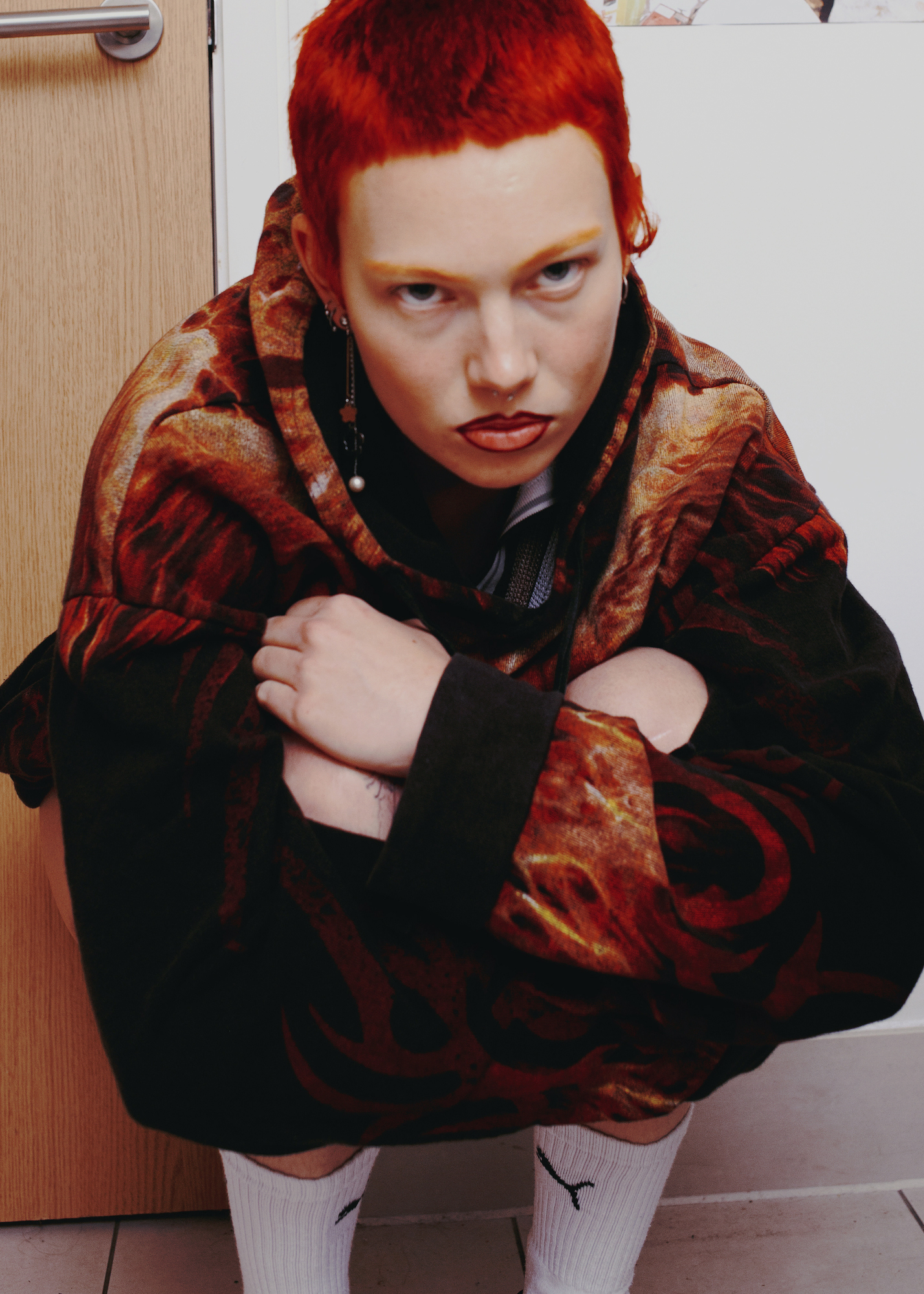
Credits
Photography Guen Fiore
Styling Rubina Vita Marchiori
Makeup Machiko Yano and Raffaele Romagnoli
Talent Livvy, Albertine, Eliza at Anti-Agency, Molly at Anti-Agency, Anugraha at Anti-Agency, Florence, Vera at Anti-Agency, Catherine, Karwea, Adhieu at Neo Management, Jewel at Anti-Agency.
Special thanks to MIMIPOSA, Sofia Massuti, Frida Joe, Planet B and Lavinia Gaudiello.
